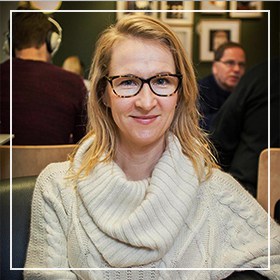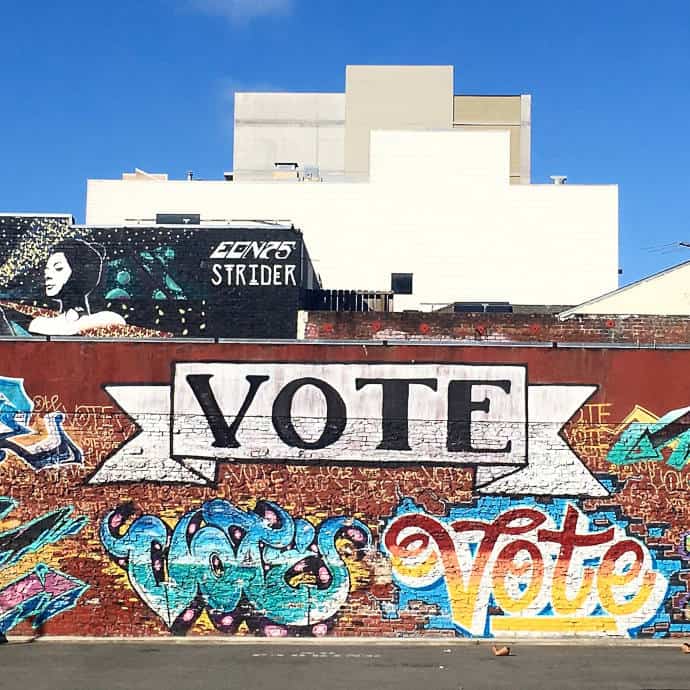 Allegra: You decided to run for the elections of the new EASA committee. Can you let EASA members know a little bit about your academic path and interests?
Allegra: You decided to run for the elections of the new EASA committee. Can you let EASA members know a little bit about your academic path and interests?
Miia: I am a legal anthropologist specialized in the analysis of the contemporary human rights phenomenon with thorough training in both social anthropology and critical international law. Myk fieldsites include expert networks, NGO coalitions, the Finnish Ministry of Foreign Affairs and UN human rights monitoring bodies, in particular the treaty body called the Human Rights Committee which monitors how states comply with the International Covenant on Civil and Political Rights. I am currently writing a monograph around the full life cycle of one human rights report submitted for this Committee.
My most long-term institutional affiliation is the University of Helsinki, where I defended my PhD in 2008, and have since 2003 acted as a lecturer in both anthropology and law. I am currently a Core Fellow of the Helsinki Collegium of Advanced Studies. In addition I am affiliated to numerous universities and research institutes in Finland and Europe.
I am also the co-founder of Allegra Lab (with Julie Billaud) and the chair of Allegra Lab Helsinki.
Allegra: What are your main motivations in joining the EASA Committee? Do you have some ‘insider’ knowledge of the association?
My motivation to join the Executive Board could be summarized in the hope of bringing in some ‘fresh air’. I wish to build on my experiences of the unconventional and unprecedented academic context embodied by Allegra Lab, and to assist the EASA to revisit its mandate so as to become continually more relevant in our changing world.
Since becoming an EASA member in 2014 I have gained a fairly extensive understanding of the Association’s operations. We have covered the bi-annual meeting at Allegra Lab via blog posts, live social media updates and videos. I have been actively present in the Members’ forum. I have further been an engaged member of LAWNET, the merger of the former Network for the Anthropology Rights and Law and the Network of International Governance, including arranging events and panels. At the end of 2018 I was invited to join LAWNET as its third convener.
Allegra: What are your views regarding Open Access publishing and ‘public anthropology’ more broadly?
I do not see how one might not support Open Access as a principle: scholarship, after all, is about, and for, the world and its people. To have so much scholarship locked behind paywall is both ludicrous and outrageous; it is the single most important element that contributes to the marginalization of scholarly perspectives in ongoing societal debates. Making scholarship more openly accessible should be a paramount, shared goal.
I have followed debates and developments related to OA closely, delighted by the numerous new approaches that have been conjured up. These include arrangements with universities that make publications by university researchers openly accessible via universities’ online platforms. Simultaneously I am aware and troubled by the problems that accompany many practical attempts to realize open access. The collective lapse of professional and ethical conduct that we saw last year around HAU is one incarnation of these problems. More broadly, OA’s biggest dilemma relates to funding: in order to uphold stringent scholarly standards as well as the continued preservations of actual scholarly jobs, we need sufficient funding for language editors, substantive editors, in addition to the resources required for technical production of scholarship. So far we have not seen sufficient innovativeness and commitment to instigate broad-sweeping changes.
One practical and potentially revolutionary step might be to simply make content available online. For example, EASA members could via their membership fees contribute toward having Social Anthropology / Anthropologie Sociale freely available online. This would mean a radical change on how membership is seen: instead of securing exclusive benefits for members, membership would become a way to contribute for the greater role of scholarship and anthropology in societies more broadly. I am optimistic enough to think that both current and future EASA members find commitment and inspiration in this goal.
Allegra offers an example of how anthropologists can engage with a broader audience. But we could do so much more if long-term issues of funding were addressed. Here collaboration is key: established blogs could collaborate with existing journals, book publishers and research projects instead of everyone opening a new blog of their own. The technical means that exist make all this feasible, cost-efficient and doable.
Allegra: A new generation of anthropologists is experiencing a series of concerns related to their profession and their future. How do you see the role of EASA in this scenario?
Being a precarious academic and a mother I feel these concerns intimately. I see the urgent need for such professional associations as the EASA to address the fraught professional situation of anthropologists seriously. I do think that things have changed for good: the shift toward temporary contracts, the projectivization of the academia and the sharp decline of permanent positions are here to stay. We urgently need new solutions and inspiration for figuring out what it means to be a professional scholar and an intellectual in the reality of short-term contracts.
What is startling in the current situation of universities is a certain uniformity of developments throughout the world: the precarization of academia, combined with neo-liberal management culture and the transition of universities from public institutions into private ‘brands’ producing ‘commodities’ is alarming. At the European level we can easily identify the Lisbon Agenda and the ERC funding scheme explaining these trends.
These European-level developments concretize why such continental-level associations as the EASA are direly needed. We need entities that are capable of revealing broader patterns of isolated cases, and exerting greater pressure in instances of individual wrong-doing.
The EASA is needed also because of the recent attacks against anthropology as a discipline. The decision of Poland’s educational ministry to abolish anthropology as a distinct discipline in educational curricula offers merely one recent example of such a worrying trend. With the rise of right-wing politics, authoritarianism, populism, and polarization of public opinion the nuanced voice of anthropology is needed more than ever. I envision the EASA to hold a key role in strengthening that collective voice.
Featured image by wiredforlego (flickr, CC BY-NC 2.0)





